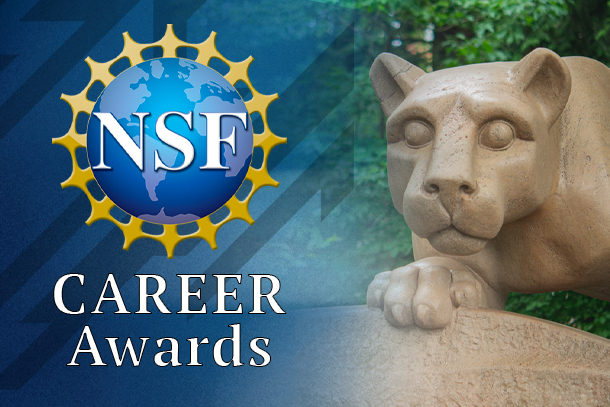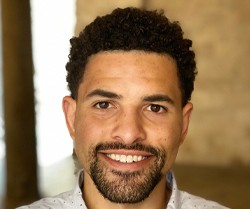
Credit: Kate Myers/Penn State
2023 NSF CAREER Award: Christopher Dancy
March 3, 2023
UNIVERSITY PARK, Pa. — Christopher Dancy, Harold and Inge Marcus Industrial and Manufacturing Career Development Associate Professor of Industrial and Manufacturing Engineering and of Computer Science and Engineering in the Penn State College of Engineering, earned a five-year, $581,257 NSF CAREER Award for a project titled “SocioCulturally Competent Agents to Study and Improve Human-AI Interaction.”
What do you want to understand or solve through this project?
We want to understand the ways social and cultural knowledge interacts with both the way people think and the physiology to influence how people interact with artificial intelligence (AI) agents.
How will advances in this area impact society?
These advances would give us a better, more critical understanding of how things like stress and systems of oppression, like white supremacy, may influence how people view and interact with AI agents and related computing systems. We’re also using this project to work with the Multicultural Engineering Program at Penn State to introduce some of what we learn to students. With that collaboration, we’re excited to introduce some of this work to students so that they have a better awareness of the ways our own social and cultural context influences the way we think and interact with AI systems.
Will undergraduate or graduate students contribute to this research? How?
Both undergraduate and graduate students will help to run behavioral studies related to the work and to develop cognitive models and software for the virtual environments of our studies, which includes some interesting tasks in Minecraft.
The NSF CAREER award not only funds a research project, but it also recognizes the potential of the recipient as a researcher, educator and leader in their field. How do you hope to fulfill that potential?
I have been fortunate to have a standpoint and interest that gives a unique take on this area of human-AI interaction. I hope to fulfill that potential by continuing to view this as a transdisciplinary question, one that brings in perspectives not only from computer science and engineering, but from areas such as cognitive science and Black studies. I will continue to bring in such unique, but needed, perspectives to help lead research and education that allow for a more contextualized viewpoint on the ways people interact with AI systems.




